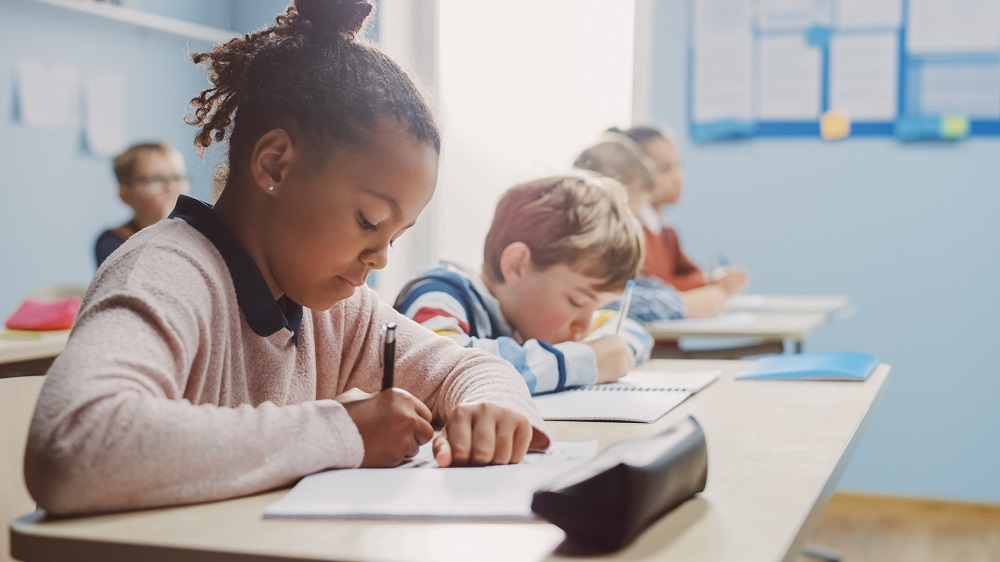‘Language Detectives’: primary school students explore the linguistic landscape in the Netherlands
Don’t be surprised if you see hundreds of children walking around your neighborhood with a phone in their hands this week: more than 5,000 primary school students are participating in ‘All Schools Gather 2024: Language Detectives.’ The project encourages young researchers to critically examine the different languages in their surroundings.

In the nationwide project ‘All Schools Gather,’ primary school students from grades 6, 7, and 8 take part in citizen science research on multilingualism. These so-called ‘language detectives’ are guided by Max Spotti from Tilburg University and Eva Knopp from Radboud University. Armed with notebooks and phones equipped with a photo exploration app, the children search for different languages in their school environment and document where these appear, such as on signs, walls, or shop windows.
‘Language Detectives: a search for the languages around you’ is a citizen science project, in which non-scientists collect data and answer a research question. This year, the research focuses on linguistic landscaping; mapping out the linguistic diversity of the Netherlands. ‘With this research, we want to show children the diversity of the Dutch linguistic landscape, but we also want to give them scientific experience: what does it actually mean to conduct research, and what ethical norms are involved?’ says Spotti.
Science in primary education
After gathering data from their school environment, the students discuss which languages and dialects they have found and why they might be used there. According to Spotti, it is important to introduce children to science at such a young age: ‘By engaging with science, children learn that everything exists for a reason. A language and its presence are not random. You teach children to reason why these things exist, thereby fostering a critical perspective.’
In addition, he wants to show primary school students that the diversity of languages in the street scene reflects our globalized and complex society. ‘We try to show children the presence of different languages, but also that multilingualism can include various dialects or forms of the Dutch language,’ says Spotti.
The researchers themselves will also work with the data. ‘We have from January to April 2025 to analyze the data,’ Spotti explains. Ultimately, Spotti and Knopp, with the help of thousands of primary school students, will map the diversity of the Dutch linguistic landscape, from English to Turkish and from Chinese to Brabants.
‘All Schools Gather’ is an initiative of the national Science Nodes. These are collaborations between universities and elementary school, with the aim of making scientific knowledge accessible to (primary) education. For example, the ‘Language Detectives’ project encourages young researchers to solve social issues with curiosity and a critical eye.
For this article, the Dutch project name ‘Alle Scholen Verzamelen’ was translated to English.






